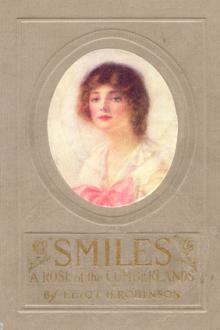Genre Romance. Page - 27

"I wonder," said the mother, wearily, when they neared the door, "if they've got any coal?"
"Don't worry," said Jennie. "If they haven't I'll go."
"A man run us away," was almost the first greeting that the perturbed George offered when the mother made her inquiry about the coal. "I got a little, though." he added. "I threw it off a car."
Mrs. Gerhardt only smiled, but Jennie laughed.
"How is Veronica?" she inquired.
"She seems to be sleeping," said the father. "I gave her medicine again at five."
While the scanty meal was being prepared the mother went to the sick child's bedside, taking up another long night's vigil quite as a matter of course.
While the supper was being eaten Sebastian offered a suggestion, and his larger experience in social and commercial matters made his proposition worth considering. Though only a car-builder's apprentice, without any education except such as pertained to Lutheran doctrine, to which he objected very strongly, he was

'But are all these quite necessary troubles?' asked Margaret, looking up straight at him for an answer. A sense of indescribable weariness of all the arrangements for a pretty effect, in which Edith had been busied as supreme authority for the last six weeks, oppressed her just now; and she really wanted some one to help her to a few pleasant, quiet ideas connected with a marriage.
'Oh, of course,' he replied with a change to gravity in his tone. 'There are forms and ceremonies to be gone through, not so much to satisfy oneself, as to stop the world's mouth, without which stoppage there would be very little satisfaction in life. But how would you have a wedding arranged?'
'Oh, I have never thought much about it; only I should like it to be a very fine summer morning; and I should like to walk to church through the shade of trees; and not to have so many bridesmaids, and to have no wedding-breakfast. I dare say I am resolving against the very things that have given me

y dear Sir Thomas, I perfectly comprehend you, and do justice to the generosity and delicacy of your notions, which indeed are quite of a piece with your general conduct; and I entirely agree with you in the main as to the propriety of doing everything one could by way of providing for a child one had in a manner taken into one's own hands; and I am sure I should be the last person in the world to withhold my mite upon such an occasion. Having no children of my own, who should I look to in any little matter I may ever have to bestow, but the children of my sisters?-- and I am sure Mr. Norris is too just--but you know I am a woman of few words and professions. Do not let us be frightened from a good deed by a trifle. Give a girl an education, and introduce her properly into the world, and ten to one but she has the means of settling well, without farther expense to anybody. A niece of ours, Sir Thomas, I may say, or at least of yours, would not grow up in this neighbourhood without many advantages. I

y give them occasionally will be of far greater assistance than a yearly allowance, because they would only enlarge their style of living if they felt sure of a larger income, and would not be sixpence the richer for it at the end of the year. It will certainly be much the best way. A present of fifty pounds, now and then, will prevent their ever being distressed for money, and will, I think, be amply discharging my promise to my father."
"To be sure it will. Indeed, to say the truth, I am convinced within myself that your father had no idea of your giving them any money at all. The assistance he thought of, I dare say, was only such as might be reasonably expected of you; for instance, such as looking out for a comfortable small house for them, helping them to move their things, and sending them presents of fish and game, and so forth, whenever they are in season. I'll lay my life that he meant nothing farther; indeed, it would be very strange and unreasonable if he did. Do but consider, my dear Mr. D

the summer with unimpaired cheerfulness, confiding to me that he secured his luncheons free at the soda counter. He came frequently to see me, bringing always a pocketful of chewing gum, which he assured me was excellent to allay the gnawings of hunger, and later, as my condition warranted it, small bags of gum-drops and other pharmacy confections.
McWhirter it was who got me my berth on the Ella. It must have been about the 20th of July, for the Ella sailed on the 28th. I was strong enough to leave the hospital, but not yet physically able for any prolonged exertion. McWhirter, who was short and stout, had been alternately flirting with the nurse, as she moved in and out preparing my room for the night, and sizing me up through narrowed eyes.
"No," he said, evidently following a private line of thought; "you don't belong behind a counter, Leslie. I'm darned if I think you belong in the medical profession, either. The British army'd suit you."
"The - what?"
"You know - Kipling ide

nd Baron Osborne of Kiveton, in Yorkshire; Lord High Treasurerof England, one of His Majesty's Most Honourable Privy Council,and Knight of the Most Noble Order of the Garter.
My Lord,
The gratitude of poets is so troublesome a virtue to great men,that you are often in danger of your own benefits: for you arethreatened with some epistle, and not suffered to do good inquiet, or to compound for their silence whom you have obliged.Yet, I confess, I neither am or ought to be surprised at thisindulgence; for your lordship has the same right to favourpoetry, which the great and noble have ever had--
Carmen amat, quisquis carmine digna gerit.
There is somewhat of a tie in nature betwixt those who are bornfor worthy actions, and those who can transmit them to posterity;and though ours be much the inferior part, it comes at leastwithin the verge of alliance; nor are we unprofitable membersof the commonwealth, when we animate others to those virtues,which we copy and describe from you.

nfining clothing and bending naturally, was slender and lithesome, but full of curves which told that the bud of childhood was just beginning to open into the blossom of early maturity--about fifteen or sixteen years old, Donald guessed her to be.
At her feet lay an overturned kettle the contents from which, a simple stew, was sending up a cloud of steam from the rough floor, and explained the reason for the misty eyes and tenderly nursed ankle.
The whole picture was graven on his mind in a single glance; but, the next instant the sunniest, most appealing of smiles broke through the girl's pain-drawn tears.
"Yo' ... yo' looked so funny a-fallin' over thet thar dawg, an' a-rollin' on the floor," her words bubbled forth.
"I'm glad that you have something to laugh about, but dev ... deucedly sorry that I made you burn yourself, child," answered Donald, awkwardly. "It must hurt like the ... the mischief," he added, as he stepped forward to examine the injury with a quick return to his

beneath the rose-trees; and here and there a daisy grafted on a rose-branch flowered with a luxuriance prophetic of Mr.Luther Burbank's far-off prodigies.
In the centre of this enchanted garden MadameNilsson, in white cashmere slashed with pale blue satin,a reticule dangling from a blue girdle, and large yellowbraids carefully disposed on each side of her muslinchemisette, listened with downcast eyes to M. Capoul'simpassioned wooing, and affected a guileless incomprehensionof his designs whenever, by word or glance, hepersuasively indicated the ground floor window of theneat brick villa projecting obliquely from the right wing.
"The darling!" thought Newland Archer, his glanceflitting back to the young girl with the lilies-of-the-valley. "She doesn't even guess what it's all about."And he contemplated her absorbed young face with athrill of possessorship in which pride in his own masculineinitiation was mingled with a tender reverence forher abysmal purity. "We'll read Faust together

a skeleton frame. His eyes are so deep that you can hardly see the fixed pupils. You just see two big black holes, as in a dead man's skull. His skin, which is stretched across his bones like a drumhead, is not white, but a nasty yellow. His nose is so little worth talking about that you can't see it side-face; and THE ABSENCE of that nose is a horrible thing TO LOOK AT. All the hair he has is three or four long dark locks on his forehead and behind his ears."
This chief scene-shifter was a serious, sober, steady man, very slow at imagining things. His words were received with interest and amazement; and soon there were other people to say that they too had met a man in dress-clothes with a death's head on his shoulders. Sensible men who had wind of the story began by saying that Joseph Buquet had been the victim of a joke played by one of his assistants. And then, one after the other, there came a series of incidents so curious and so inexplicable that the very shrewdest people began to feel uneasy.

he truth. Let me go, you don't understand what will happen. My brothers-"
The Lord Cleric punched her. Her head flew back and a spray of blood wet the dry mud and spattered over the leaves concealing me. Face wet with tears and whimpering, she tried to crawl toward the trees and dragged up clumps of earth with her fingernails.
"You must let me go." The words sounded muffled, like she had a mouthful of something foul.
The Lord Cleric executed a neat half turn and stamped on her thigh. There was a sharp snap, like I'd picked up a twig and yanked on the ends until the fibers split apart and cracked open. The fairy's leg buckled into an unnatural shape and she screamed. The sound was guttural, a direct translation of pain to sound. I slapped a hand over my mouth to smother my own shriek. Not because of the broken bone, I'd seen and heard tons of those, but because I'd caught the Lord Clerics profile and recognized the handsome face. The Lord Cleric dragged the fairy back into the centre of th